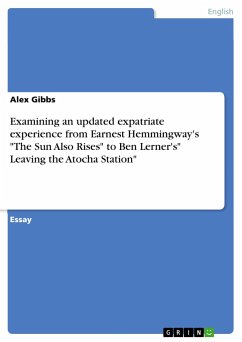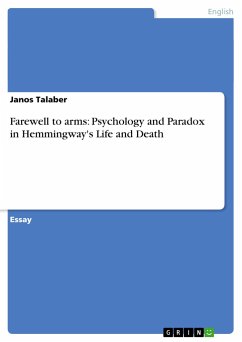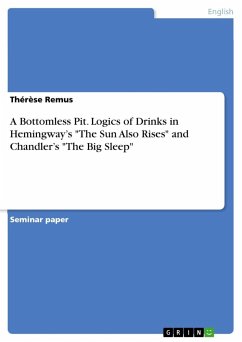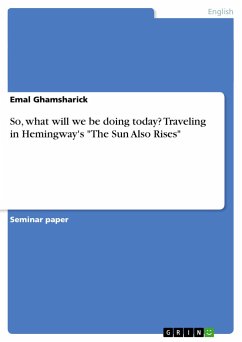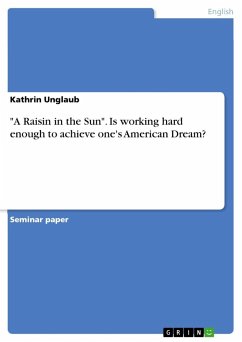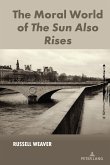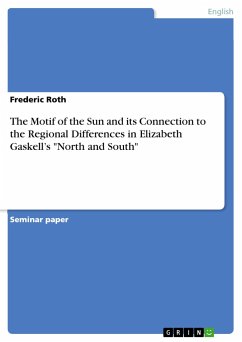Essay from the year 2016 in the subject English Language and Literature Studies - Literature, grade: 1.0, University of Warwick, course: English and Comparative Literature, language: English, abstract: Hemingway's Paris of the 'roaring twenties' as it is presented in "The Sun Also Rises" follows a group of expatriates indulging in excess and pursuit of experience: loose and heavy spending, partying and a lot of alcohol. A 'lost generation', reeling from the shattering of pre-war ideals and values, most of them are veterans or in some way directly connected to the war. It paints a lifestyle of an expatriate that is flashy, glamorous, yet somehow empty. The novel's protagonist, Jake Barnes, is a man's man, yet 'un-manned' by the war and terribly in love with fellow expatriate Lady Ashley. Ben Lerner's 21st century addition to the American expatriate genre seems initially far removed from "The Sun" and not just as a result of the 90 odd years separating Madrid of 2004 from 1920s Paris. Adam Gordon, fraudulent protagonist of "Leaving the Atocha Station", is disillusioned with art, poetry and authenticity in general. His scholarship to Madrid has included little actual research: his time is marked by consuming alcohol, mounds of hash and attending occasional meaningless party and generally failing to accumulate experience. Yet these two expatriate experiences are in discourse with one another through several key concerns of the genre: the drive for experience, the dangers of Europe, the competence of the American expatriate and the unobtainable. These various themes place these two texts in a conversation over what it means to be an American expatriate, and how that experience has changed or updated from Hemingway's Spain and Paris to Lerner's Madrid - particularly that expatriate identity even still exists.
Hinweis: Dieser Artikel kann nur an eine deutsche Lieferadresse ausgeliefert werden.
Hinweis: Dieser Artikel kann nur an eine deutsche Lieferadresse ausgeliefert werden.

